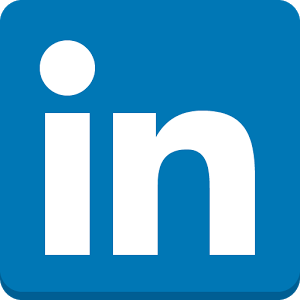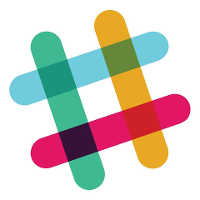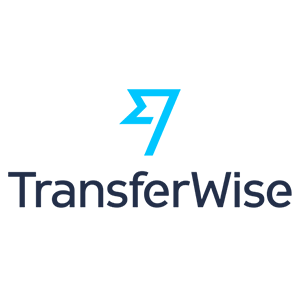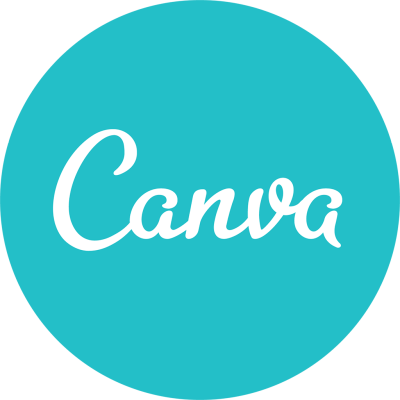Building A $60K/Month Marketing Company With A Small Team Of 7 People
Hello! Who are you and what business did you start?
Hi, my name’s John Ainsworth and I’m the founder and CEO of Data Driven Marketing. We help online course creators to boost revenue through email marketing and funnels. After an initial, paid audit - we only charge based on results, which makes us unusual in the industry.
Typically, our clients see a 100% to 150% increase in new course leads within just the first 60 days of working with us. They then grow their revenue between 200% to 500% (80% to 90% of our long-term clients are in that range).
We have a group coaching program called the Instant Course Sales Program, as well as a Done For You service, where we build funnels and provide email marketing for our clients.
One of the best decisions I made was to niche down into working exclusively with online course businesses.
I launched the business in May 2018, and it’s grown year on year since then. We recorded $60,000 in sales in 2018, $100,000 in 2019, $250,000 in 2020, $400,000 in 2021 and $600,000 in 2022. We're now on track to hit over a million in 2023.

What's your backstory and how did you come up with the idea?
My story starts with a company I founded called Make Sport Fun, which helped people to get back into sports and activity. The inspiration for this came from my own experience of hating sports at school – so much so that I used to hide in a cupboard to avoid sports lessons!
But that changed when I discovered a love of individual sports, such as running, and saw it was just a team sport I didn’t like. It was a revelation and I set up the business as I wanted to help others become active.
Make Sport Fun had the remit to help government agencies get people back into sports, particularly ‘excluded’ groups like older people, cancer patients, and people with disabilities. It worked well and we significantly boosted participation levels and cut costs for our clients.
However, I soon learned that government agencies are a nightmare to work with – as they aren’t interested in results and so much politics is involved. So, we moved to work with private clients, like gyms and martial arts clubs, and build funnels to boost their customer numbers. The problem was, we quickly became a victim of our success.
Our clients were getting filled up so fast that they didn’t need us anymore!
So, I started to look for an industry where capacity wasn’t such an issue. I tested out working with e-Commerce and SaaS firms, before settling on the online course sector, as I identified a problem there that needs solving. The problem is that many course creators have a big audience but low sales. In other words, people come for free advice, but few are prepared to pay for the course.
So, there was a gap in the market for someone who could turn interest into sales. I realized my experience in funnel building could help these people.
We now help our clients profit from their existing audience by turning prospects into paying customers. It's been a great move and I haven’t looked back. Online course businesses are easy to work with and we can help them make serious money, quickly. I also love working with my clients, as online course creators tend to be nice, energetic, and focused people.
Take us through the process of building the first version of your product.
I came into the online course sector with lots of skills and experience from my sports business. I loved what I did and was good at it, but knew that I had to provide what the market wanted. So, I looked at online course creation groups and spoke to many contacts in the sector, to discover which of my skills would be most helpful and valuable to course creators.
This allowed me to list seven or eight things that I felt could help my potential clients, which I shared with various Facebook groups and contacts.
I did polls and analyzed all the data. This narrowed it down to two different offerings, which were KPI analysis and building funnels. Then I went into a business community that I'm in - called the DC - and offered a free audit to five people, where I'd go through their data and do a KPI analysis to identify any gaps and help them figure out what they could do to make their funnels work better.
Two of the people who took the free audit then signed up as clients - one of them for further KPI analysis and one for funnel building. So, those became two major parts of my business.
Describe the process of launching the business.
I had to keep plugging away – testing stuff and honing my offer. It was exhausting, stressful, and laborious – but it worked! Within six months I knew I had something people wanted and for which there were a lot of potential clients.
I hadn’t refined my offer or got it to the quality necessary to hit the market, but I knew it could succeed – even if I didn’t necessarily know what success would look like.
My launch strategy was to network hard, attend conferences, give presentations, and help people out for free on forums. I knew people needed my skills, but I had to get my foot in the marketplace – that was the key to success. I also had work left over from the previous business that helped me get this one started.
I think it was about $40,000 worth of projects, which brought in revenue that allowed us to move Data Driven Marketing forward in those early days.
Since launch, what has worked to attract and retain customers?
At first, the biggest thing that worked in attracting customers was networking. That still brings in clients, along with referrals from happy customers, podcasts, and webinars for other people's audiences.
When it comes to podcasts, I’ve been featured on Authority Hacker, Income School, Niche Pursuits, Creator Smarts and others. I also run my podcast, called The Art Of Selling Online Courses, where I talk to people who have secret hacks and proven strategies to help course creators. This is good for the lead nurturing side of things.
We’ve also just started running Facebook ads. It’s early days with this, so we’re currently monitoring performance to see if it can be a significant channel for customer acquisition.
How are you doing today and what does the future look like?
Nowadays, we are consistently profitable. We have an 80% gross margin on most of our products, but we reinvest a lot of the revenue back into growing the business, developing our systems, and hiring and training new staff.
We are a small team - four in the delivery team and three in marketing, and the CEO (me) - but this will grow with the business.
Our sales process starts when somebody fills out our Profit Increase Report questionnaire. They give us basic details about their existing offer and audience, which we analyze. A few days later we send them a free report that outlines how much more money they could make from their online course business, and what they’d need to change in their funnel to achieve that.
As part of this, we also give away some funnel review videos, which usually cost $1000, free. Around 45% of people who get the video watch it and 90% of those go on to book a triage call with us.
This is a free 15-minute call where we discuss if and how we can help them. If it looks like we're a good fit, we do a longer strategy call. In the last six months, 91% of triage calls have led to strategy calls.
During the strategy call, we learn more about their business to understand how best to help. We map out the funnel and what they already have in place, then go deeper into goals and issues and make a plan based on what needs to be done to succeed.
The next step, if they want to work with us, is an audit. Currently, 64% of people with a strategy call move on to an audit. The price is $4,900 for the audit and two workshops, but we like to incentivize everybody interested - so if they sign up within 7 days from the strategy call, it’s $2,900. In the workshops, we provide a roadmap for what they should do over the next 6 months and in what order they should do it. We also provide a map of their current funnel, a map of their ideal funnel, and a KPI template.
After the audit, we look at what’s the best service we can offer to them. There’s no obligation to proceed, but 70% of people who buy the audit and we then offer a program to, become long-term clients. We offer Done For You and Done With You programs and bespoke consultancy services.
We work on a revenue-share basis, which means our clients only pay us if and when they make more money, and we only make money if we help them to succeed! That’s a great incentive for us and a guarantee to our clients that they’ll see a profit increase – or they don’t pay.
If you're working in a service business, go after the firms that can afford to pay you the most for what you're doing.
Through starting the business, have you learned anything particularly helpful or advantageous?
I've made an enormous number of mistakes along the way, but I work on the basis that if you’re not prepared to fail, you’ll never succeed. So, it’s been a process of trial and error, but that’s helped me build a thriving and profitable business.
One of the best decisions I made was to niche down into working exclusively with online course businesses. Another one was to focus on online course businesses with a proven product market fit and a source of traffic, e.g. through YouTube, SEO, podcasts, etc.
This means that we're not working with people who are complete beginners. Working with established clients also allows us to work on a payment-on-results basis, because it gives us a foundation to build on and ensure future growth.
What platform/tools do you use for your business?
Internally, we use Zoom, Slack, Active Campaign, WordPress, and ClickFunnels. For project management, we use Todoist and for hiring we use Job Rack.
When it comes to our clients’ funnels and email marketing, we typically stick with whatever they're already using. We're platform agnostic in that respect. If it works for the client and they’re happy with it, then we’ll fit in with that. It's not worth the extra time and hassles to shift to a new platform.
What have been the most influential books, podcasts, or other resources?
The first would be ‘’80/20 Sales and Marketing: The Definitive Guide to Working Less and Making More’’ by Perry Marshall. It breaks down several different areas of business and shows you how to identify and concentrate on the most important parts of what you're doing.
I also love ‘’The 80/20 Principle’’ and ‘’The Star Principle: How It Can Make You Rich’’ by Richard Koch. ‘’The 80/20 Principle’’ teaches the same processes as ‘’80/20 Sales and Marketing’’, but for life in general. And ‘’The Star Principle’’ is based around the famous Boston Consultant Group Matrix and shows you how to boost success by becoming a leader in a high-growth sector.
Traction is an amazing book about how to make your business run like Clockwork. Four Hour Work Week opened my eyes to what was possible in terms of lifestyle design and why it was worth starting my own business.
Million Dollar Offer is an incredible course (and book) about how to make your offer amazing. Roadmapping is an amazing course from Brennan Dunn about how-to-sell audits and road mapping sessions (not currently on sale, but I think they’re redoing it at the moment).
Advice for other entrepreneurs who want to get started or are just starting out?
Don't blindly focus on your passion. You should try and do something you love and enjoy, as you’re gonna spend a lot of time doing it! But you must also make sure you offer something that the market wants and needs. So, do your research – get out there and see if firms in your target sector are interested, and are willing to pay for what you want to offer. If not, you must go back to the drawing board.
Also, if you're working in a service business, go after the firms that can afford to pay you the most for what you're doing. Bigger businesses can afford to pay more than smaller firms for the same service – so it makes sense to target these in your marketing and client acquisition strategies.
Are you looking to hire for certain positions right now?
Yes, we are. We're currently looking to hire a mid-level account manager, who will support our senior account managers with project delivery for our amazing clients. It is a full-time position with the bonus of trips to company events in cool cities around Europe!
For more information, go to the link and click on careers.
Where can we go to learn more?
If you have any questions or comments, drop a comment below!

Download the report and join our email newsletter packed with business ideas and money-making opportunities, backed by real-life case studies.

Download the report and join our email newsletter packed with business ideas and money-making opportunities, backed by real-life case studies.

Download the report and join our email newsletter packed with business ideas and money-making opportunities, backed by real-life case studies.

Download the report and join our email newsletter packed with business ideas and money-making opportunities, backed by real-life case studies.

Download the report and join our email newsletter packed with business ideas and money-making opportunities, backed by real-life case studies.

Download the report and join our email newsletter packed with business ideas and money-making opportunities, backed by real-life case studies.

Download the report and join our email newsletter packed with business ideas and money-making opportunities, backed by real-life case studies.

Download the report and join our email newsletter packed with business ideas and money-making opportunities, backed by real-life case studies.







































